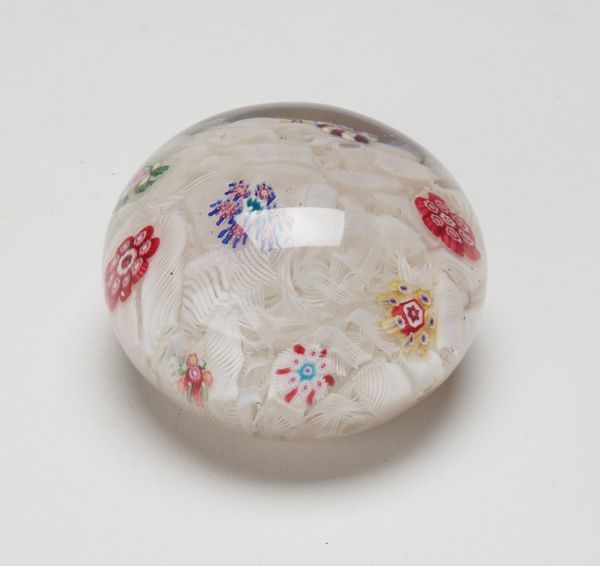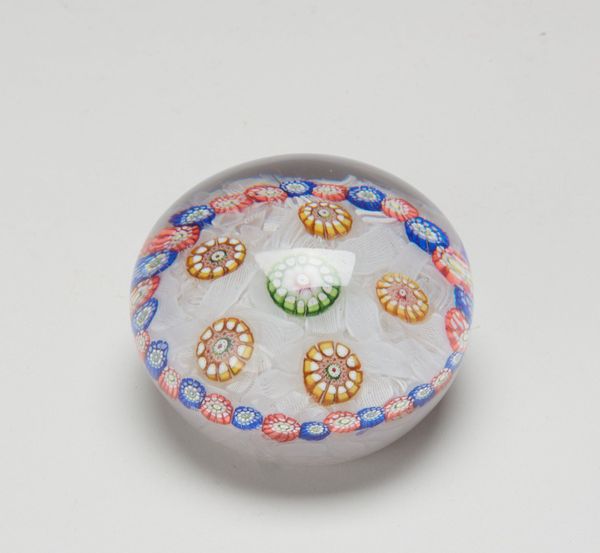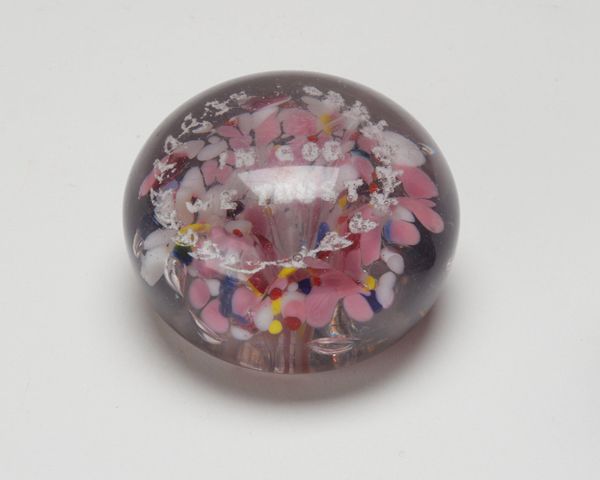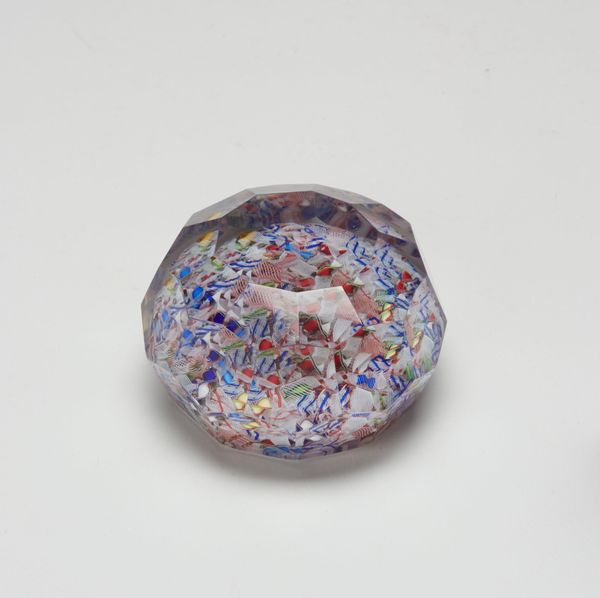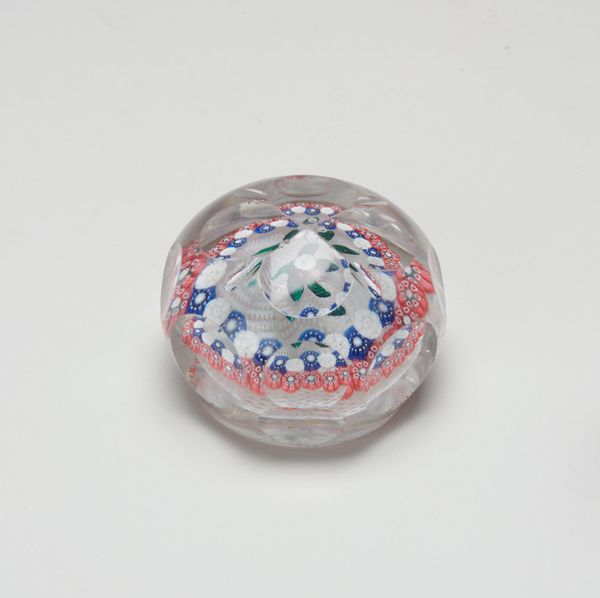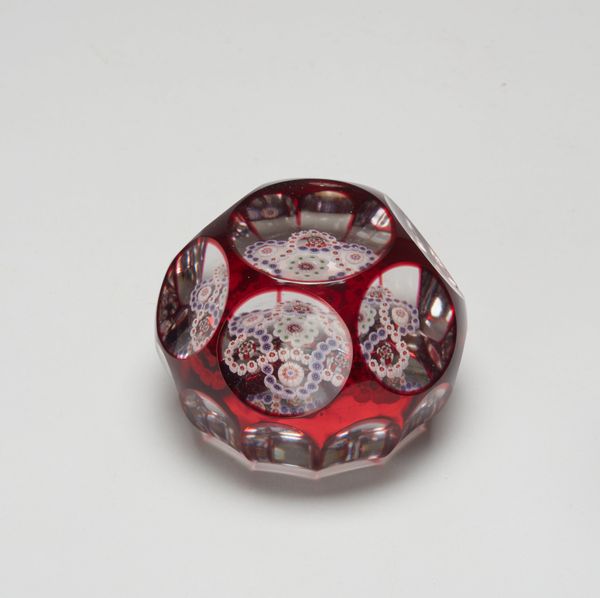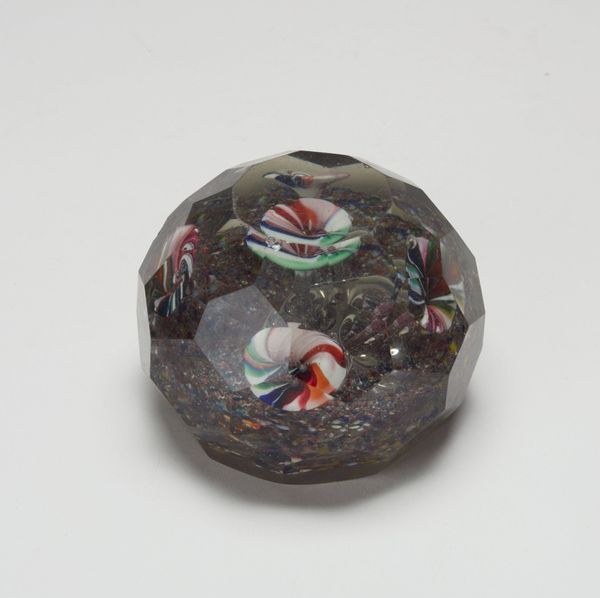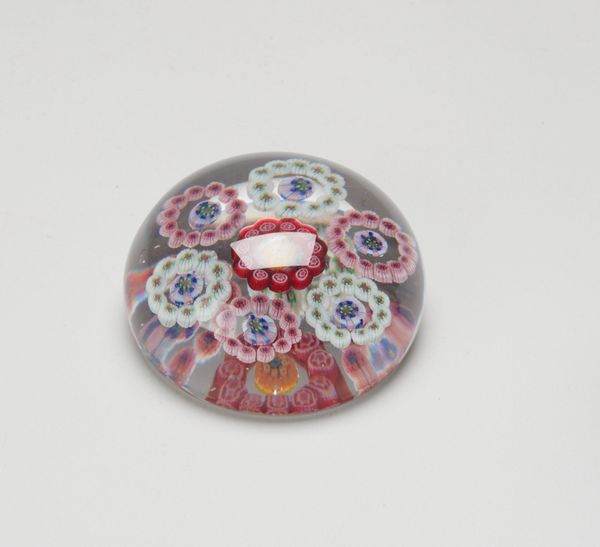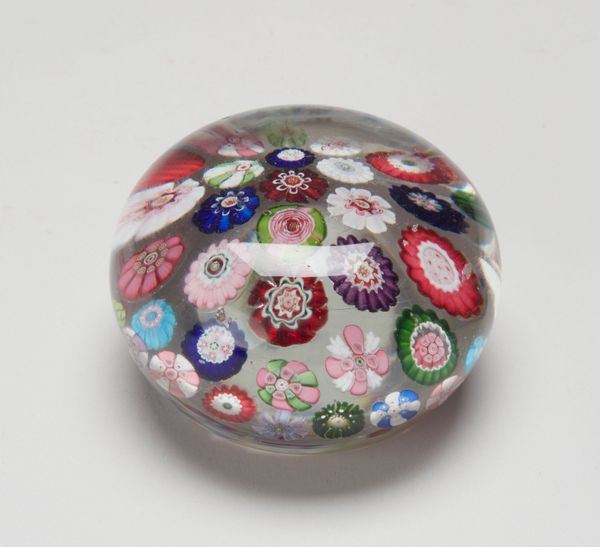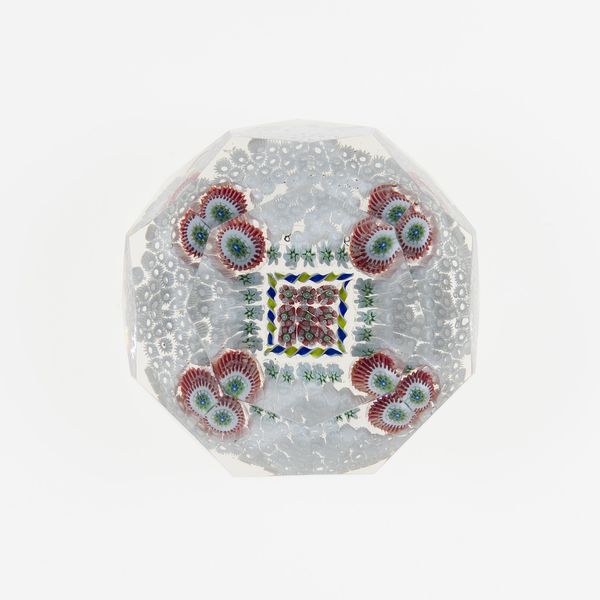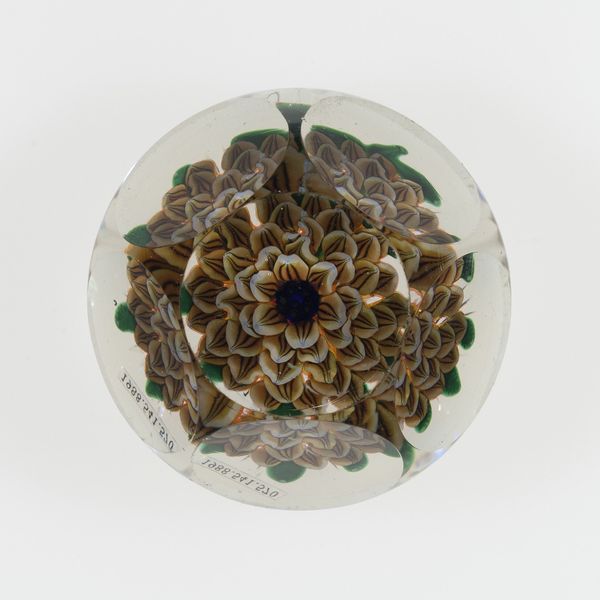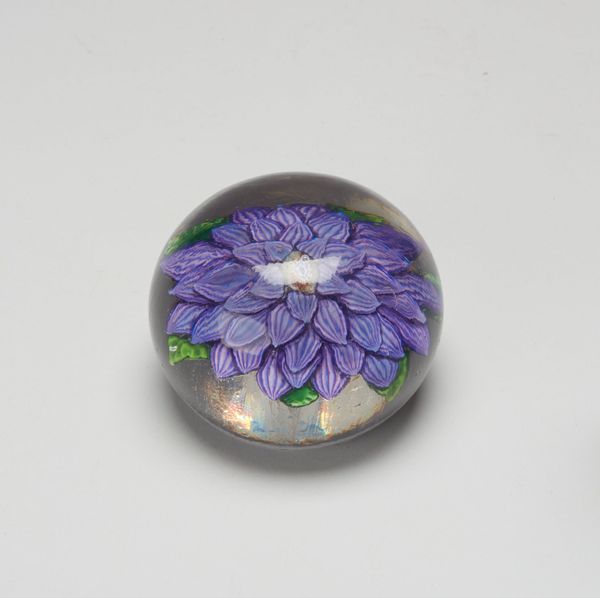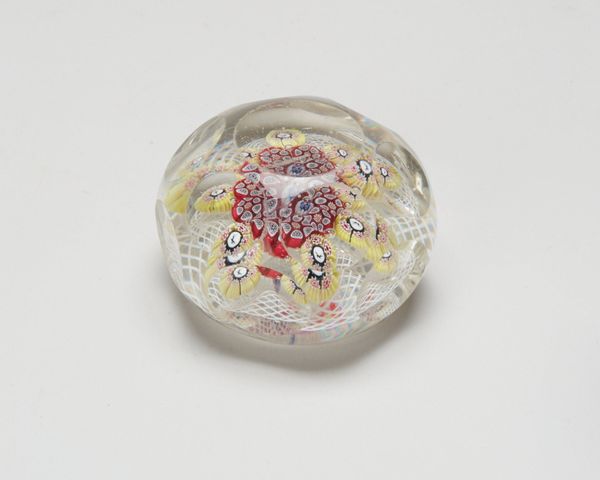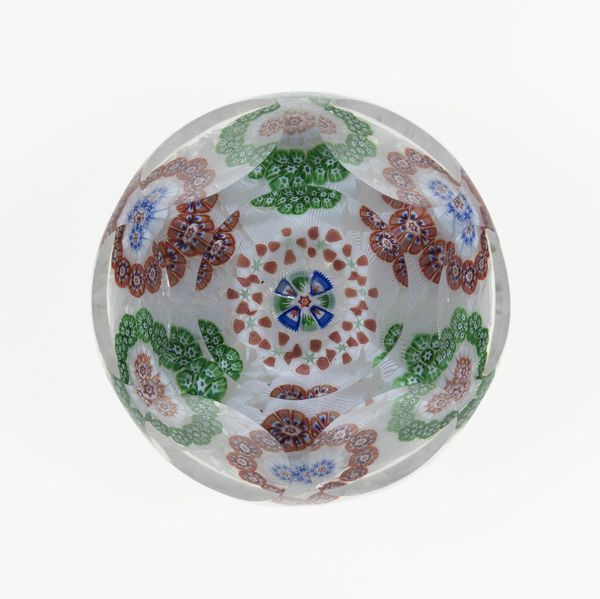
ceramic, glass
#
ceramic
#
glass
#
ceramic
#
decorative-art
Dimensions: 1 1/4 x 2 5/8 x 2 5/8 in. (3.18 x 6.67 x 6.67 cm)
Copyright: Public Domain
This anonymous paperweight, now at the Minneapolis Institute of Art, is a fascinating example of the intersection between decorative arts and social history. Though small, this object reflects broader trends in 19th-century European craft and industry. Glassblowing, while an old technique, became increasingly refined through new technologies, and its products more accessible to the growing middle class. Paperweights like this one became popular desk accessories, emblems of an increasingly literate and bureaucratic society. The floral motifs encased in glass reflect the Victorian era's fascination with nature. Consider how institutions like museums collect and categorize such objects. Is it 'art' or 'craft'? How does its display shape our understanding? By examining archival sources, trade catalogues, and social histories, we can better understand the cultural significance of this seemingly simple object. The historian's role is to unpack these layers of meaning, connecting the object to its complex social and institutional context.
Comments
No comments
Be the first to comment and join the conversation on the ultimate creative platform.
